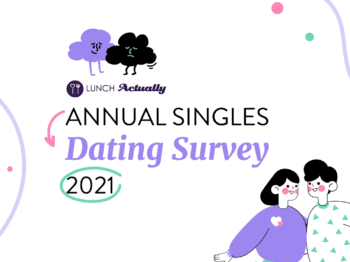How to Make Someone Like You, According to Research
We all want a fulfilling and life-altering romance. Although chemistry can't be planned, research has proven that there are sure-way methods on how to make someone like you.
Social psychology researcher Arthur Aron at Stony Brook University started by asking strangers 36 tailored questions while getting them to hold four minutes of sustained eye contact. The purpose of the exercise is to greatly accelerate a sense of intimacy among two people through personal questions. Ultimately, having a connection is how you can get someone to like you.


To
have vulnerability is to have closeness
Aron crafted these 36 questions to structure and develop a close relationship among peers by forcing “sustained, escalating, reciprocal, personalist self-disclosure”. Originally created in 1997, the questions have been receiving growing popularity since The New York Times article by university professor Mandy Len Catron, who personally attempted the experiment with an acquaintance.
…and it worked!
(Read the 36 questions in the link above and try it for yourself if you wonder how to make someone like you!)
Catron herself claimed, “We all have a
narrative of ourselves that we offer up to strangers and acquaintances, but Dr.
Aron’s questions make it impossible to rely on that narrative. Ours was the
kind of accelerated intimacy I remembered from summer camp, staying up all
night with a new friend, exchanging the details of our short lives.”
And, the unimaginable happened: Catron did end up falling in love with said acquaintance, choosing to end off her article by saying, “Love didn’t happen to us. We’re in love because we each made the choice to be.” The mutual vulnerability that happens between two people proves that it could be exceedingly difficult, yet rewarding, because this exercise forces the issue.
Even The Big Bang Theory wanted
to test out the theory behind it
Catron’s article ended up sparking a huge
interest in the set of questions, resulting in its catapulting to reign as the
new hot topic of the moment. With its methodology and results widely debated,
tested and reported on by a number of other sources, reactions and opinions
were as varied as they came, with sources like Forbes, Business Insider and
Telegraph weighing in on the subject.
Even the hit pop culture sitcom The Big Bang Theory jumped on the bandwagon – in an episode entitled “The Intimacy Acceleration”, two of the lead characters, Penny and Sheldon, agreed to test out the technique. (Spoiler alert: they didn’t fall in love… but they did manage to grow closer as friends.)
We’re all just longing to belong
somewhere
The study does have the right idea behind it, and definitely fosters the right kind of mindset. Just think: what if we stopped wondering why he/she doesn’t ever seem to take an interest in us, and instead go up to him/her? Just actively engaging them in an open, thoughtful way with the intention of encouraging a personal connection , especially on a first date, would definitely work wonders to get them to like you; or at least, create a positive impression that they would want to see you again.
We know, it’s a pretty novel – and frightening – concept.
But come to think about it, there’s nothing to lose. It seems to have worked for plenty of people around the world, so there has to be some truth behind the phenomenon. Through these questions, you can establish that closeness and intimacy to get someone that you're interested in, to like you.
At the end of the day, we just want to be known and to belong. It’s a nice feeling to know that there’s going to be someone waiting to have lunch with you, or communicates with you in a loving way. It’s just in our nature to want to belong – yeap, it’s based on the Maslow’s hierarchy of needs anyway. And to feel most known by our partner certainly feels just right.
So, are you tempted to try it out?
Perhaps it could be a great way to declutter the negative parts of your love life when you welcome a new person. You might just fall crazily in love; don’t say we didn’t warn you!
Recommended posts





